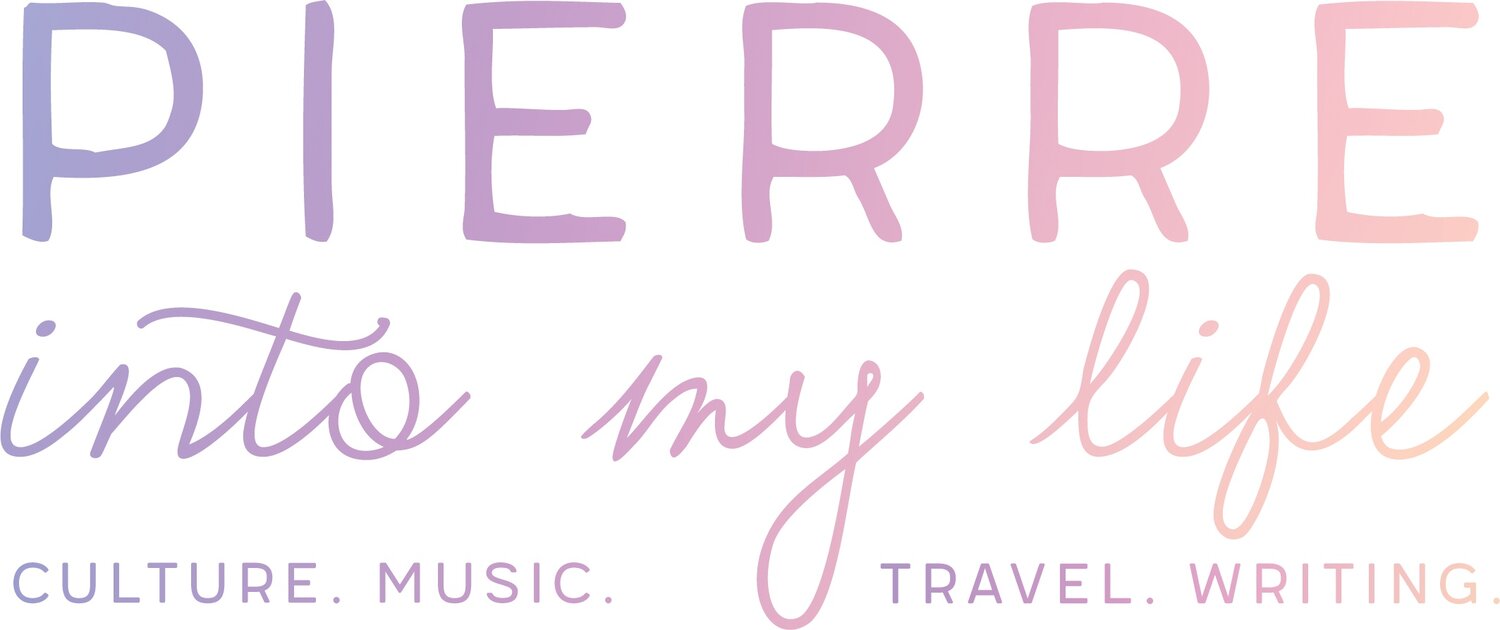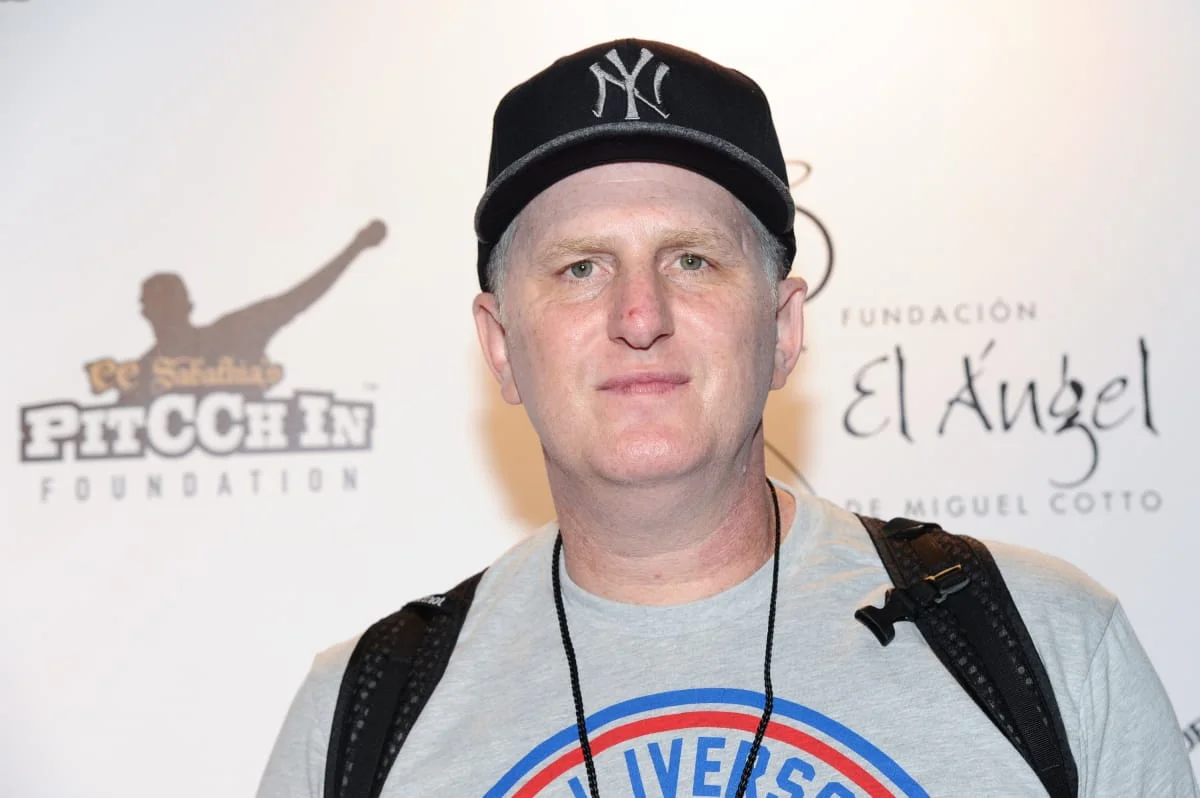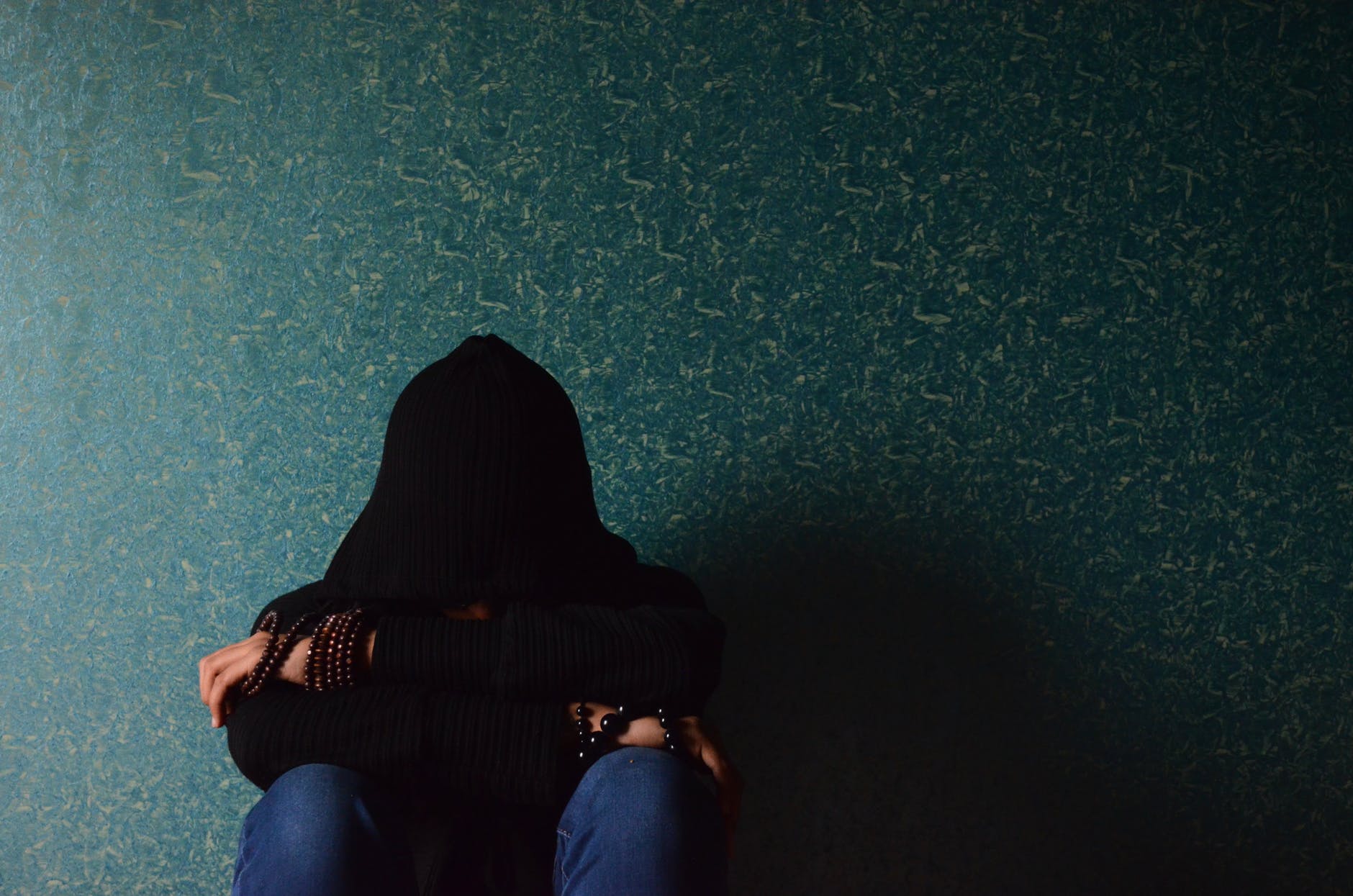Taylor Swift Delivered Hot Mess for Friday the 13th
Why Mariah Carey Sharing Her Mental Health is Important
We Need to Talk About Khloe Kardashian
Real Housewives of New York Returns and My Love for Them Continues
Austin: The Next Generation Is Way Cooler Than Mine
The Exhibit We Didn't Know We Needed
FKA Twigs x Anderson. Paak x Spike Jonze = Dazzling Ad for Apple
Rita Moreno Committed a Fashion Faux Pas
2018 Oscars' Best Dressed
The Royal Wedding Just Got Pretty Epic
I Had A Twitter Beef With Some D-List Actor
#TweetLikeThe1600s is Black Comedy Gold
A Look Back at the Very Bizarre 1998 Grammys
How a Hashtag Changed the Oscars
What Celebs Wore to the Golden Globes in 1998
2017: My Favorite Albums
Create Your Own Destiny: Joy Fennell
2017: My Favorite Things From Crystals to Memes
2017: The Best Year for Reality TV
EXCLUSIVE: RHOD's LeeAnne Locken On Where She Stands With Brandi, the 'Hot Mic Scene,' and If She's Returning Next Season
15 Things Sexier Than Blake Shelton Because WTF?
Harvey Weinstein’s Harassments Re-Opened My Own Wounds
Last week, The New York Times reported the articles “Harvey Weinstein Paid Off Sexual Harassment Accusers for Decades,” where they exposed a major Hollywood producer of asserting himself sexually on several employees, models and actresses including Ashley Judd, and Rose McGowan. Since the article was released and went viral, many A list actresses have come forward addressing their own accounts. While reading many of the victims’ stories I noticed a familiar theme, many of them were either threatened to not say anything or were too scared to say anything of what they had experienced. This reopened my own wounds of my experience with sexual assault, where I didn’t feel comfortable coming forward, and was threatened to not speak on it. My experience is just one of many; Whether it was a famous Academy Award winner or an average everyday person you’ve known from school, a family member, or even yourself, who was too scared to say something about their own assault. When will it we come to a point where that is no longer the case?
I’m not a celebrity nor was the person who raped me a powerful man in Hollywood. However, I was shamed for what I experienced. Whether it’s because of ingrained double standards I’ve come too familiar with, or law enforcement didn’t think it was severe enough to handle. My first experience was at 21. It was any normal night out with my girlfriends in college at a local lounge we frequented. My attacker was the lounge’s bartender that I had grown to have a crush on. After a night of dancing and drinking, the evening became hazier as the night went on. The next morning I woke up, with my clothes off in the student lounge area in a dorm building I didn’t live in. Not completely sure of my surroundings, I didn’t know what exactly went down the night before but I was aware that I more than likely had sex. Retracing my tracks, I did find out from a friend that I went home with the bartender and she thought I was safe. I played it off that I was completely okay but the truth was I didn’t know what happened at all. Embarrassed with the fact of what went down, I became angry that I could allow myself to drink so much to get to the point of not knowing what I was doing, but the truth of the matter was, I was roofied. It had also been my first sexual “experience” ever. I had buried that entire experience from my memory shortly after. I also was too embarrassed to act on the situation.
Two years later, after an exhausting walk to the town over to a drug store. I called an ex boyfriend for a ride back to campus. He agreed and we had a nice conversation catching up about what we were doing that summer. By the time we reached my house, he believed that he was entitled to have sex with me for the favor of a ride home. I refused. He kept pushing and I repeatedly stated no. He forced himself onto me and pinned me down so strongly that it was hard for me to fight back. After a few moments and weak attempts to escape, I gave up. Someone I once trusted, was no longer someone I could trust. I felt disgusted, hurt and defeated. After he finished, he said “It wasn’t that bad after all.” I was livid. I was angry.
I just wanted to use a sad pug pic
Shortly after this happened, I disclosed what happened to a close friend, he encouraged me to report him to our local police. I decided to do so with his help. I confessed my story to two male police officers and this was their responses:
“It wasn’t in a dark alley.”
“It could be seen as consensual as you two had dated previously. You’re just trying to get back at him.”
“Do you really want to ruin his entire life?”
“If you go through with this, you’ll have to experience the situation all over again, it’s not fun.”
No, it wasn’t in a dark alley. Yes, we had dated previously but they didn’t know our relationship history. I didn’t have any hard feelings towards him. Was my life and what I had just experienced not as important as his entire life? Because no matter what, I will always have to remember that entire ordeal.
I felt defeated. I cried in the room I told the police officers because I didn’t know what else to do. I decided to not press charges and once again suppressed my feelings.
Society has made it known that rape is bad, but only a certain type of rape. The victim is always questioned more than the abuser. What was she wearing? Why would she be alone with him if she didn’t want to sleep with him? If she doesn’t come forward as quickly as society believes she should, why did she wait so long? What is she getting out of this? Many of the same questions I saw come across my social media timeline when victims came out to accuse not only Harvey Weinstein but also Bill Cosby, and Stanford student Brock Turner.
Until society changes the way we view rape culture, men will continue to assault women and feel they are entitled to their bodies. A conversation is needed where we stop saying “Boys will be boys” and stop questioning women when they speak out on their experiences. We need to hold men accountable for the way they treat women, whether it's street harassment, sexual harassment in the work place or elsewhere, or sexual assault.
It has taken me years to be able to open up about my experiences. I will never forget reading Audre Lorde’s Sisters Outsider and I came across the line “I feel, therefore I can be free.” And I broke down and cried. Basically until I understand everything I experience and actually go through those emotions, I can be free of everything I’m holding in. However, no matter what, I will never be the same. Those experiences will always be a part of who I am. And the same goes for every victim that has ever experienced any form of sexual assault.
If you or someone you know has been sexually assaulted, please seek help by calling the National Sexual Assault Hotline at 800-656-HOPE (4673). For more resources on sexual assault, visit RAINN the National Sexual Violence Resource Center.
Revisit Janet Jackson's The Velvet Rope 20 Years Later
The Velvet Rope is a metaphor for emotional boundaries as well as an allusion to the individual’s need to feel special. Behind the velvet rope, Janet unveiled her world to the listener. We hear her explore her sexuality, her willingness to experiment with BDSM and her struggle with depression, abuse and self-worth. Janet signed a $80 million contract with Virgin Records prior to the album release and attained the largest recording contract in history at that time. Yet with major success and achievement, Michael Jackson’s little sister still felt, as stated in the interlude Sad “there’s nothing more depressing than having everything and still feeling sad.” Janet used the album and theme to work through the personal demons she needed to overcome, which has become the template for artists to experiment with darker sounds. Though the album was a moment for Janet to heal personally, she used her platform to speak on LGBT community, domestic violence and depression; which was groundbreaking to hear in a pop album in the 90’s. It's time to revisit The Velvet Rope 20 years later.
After suffering from an emotional breakdown at the end of the janet. World Tour, Janet decided to face the struggles she buried for years through her music and making it the concept of the album. Working with her dream team, producers Jimmy Jam and Terry Lewis, the three created a version of Miss Jackson we had not seen or heard before. In Control, we heard her embrace self-empowerment. Rhythm Nation was on social consciousness through race, class and violence and janet. helped her open with her sex appeal. The Velvet Rope is a mature record that shows the many sides of the superstar as she works through understanding the person she has become. The composition fuses various genres, including pop, R&B, trip hop, folk, jazz, rock, funk and house. What would normally sound like a cluster fuck on most albums with an array of many genres, Jam and Lewis were able to magically blend all the sounds into the perfect package of Janet’s current state of mind.
The album debuted at the top spot of the Billboard 200 charts, selling 202,000 copies its first week and by 1998 the album sold 1.6 million copies. Its first single “Got Till It's Gone” peaked at number 36 on the Hot 100, featuring A Tribe Called Quest’s Q-Tip, where the two brought a chill trip-hop vibe over a Joni Mitchell sample of “Big Yellow Taxi”. The visual for the single is one of Jackson’s best, as it captures and celebrates the music, style, and culture in South Africa. Janet, who is effortlessly cool, also rocks bold red hair in bantu knots. This would make #teamnatural/Shea Butter Twitter retweet constantly with the caption “YAS QUEEN” if the video were released today. Even the filter and aesthetics of the video would make every Tumblr and Instagram user wish they had created the style before the video. The video would go on to win a Grammy Award for Best Short Form Music Video.
The second single was by far Janet’s most successful during the era, “Together Again” which was inspired by her friend who she lost to AIDS. The neo-disco track was inspired by Donna Summer’s “Last Dance”, it reached #1 on the Hot 100 and spent 46 weeks on the charts. It's among one of the biggest selling global singles, selling 6 million copies worldwide. The final single and one of Janet’s sexiest tunes in her discography, “I Get Lonely,” that gives listeners a familiar sound of the sultry pop-R&B which Jackson has been known for. “I Get Lonely” received positive reviews and became Jackson’s eighteenth consecutive Top Ten hit on the Hot 100, becoming the first female artist to achieve that record. One of the most memorable scenes in the visuals for the single is when Janet and her dancers rip off their white button-down shirts to expose her lace black bra, continuing to dance and sing about struggles of loneliness. In the mainstream, Janet was one of the only black artists who wasn’t afraid to be sexy and push the boundaries of how much sex appeal she could show. It paved the way for artists like Rihanna, Nicki Minaj, and Beyoncé.
“What about the times you said no one would want me? / What about all the shit you have done to me?” Janet proclaims in a stern vocal rage in “What About,” a haunting rock mid-tempo tune about a tumultuous relationship fueled by cheating, emotional and physical abuse. Janet has dug deep with the multiple struggles she dealt with in her first marriage to James DeBrage. They married when she was 16 and expressed he was demeaning and dealt with a drug problem at the time of their short relationship. Later on in the album, Janet speaks to herself in “Special” explaining it was time to reflect on every obstacle she has occurred. Even though it’s painful, she found we must overcome it and discover ways to find love within. Throughout the song, she seeks the need to feel special; which is a juxtaposition for a person who is made to feel special with multiple award shows, made up and adoring fans. Sometimes that just isn't enough. The very last words of the song are “work in progress”—she’s still hasn’t reached her full potential of conquering her pain and finding true happiness.
“He was on the airplane/sitting next to this guy/said he wasn’t too shy/and he seem real nice” Janet sings in a raw tone, “until he found out he was gay. That’s so not mellow.” On Free Xone, she tackles homophobia and those who are intolerable on same sex relationships. Yet Janet makes sure in the 90’s house jam that the LGBT community should feel “free to be who you really are.” In a Rolling Stone interview, she expressed that “I’m singing about accepting yourself and living in a world –a free zone—where the world accepts you.” Which is interesting that Janet is able to inspire those to accept and embrace who they are, yet she struggles with understanding and accepting the person she has become. Janet toys with lesbianism throughout the album. In the interlude “Speakerphone,” she is heard masturbating while speaking on the phone with a female friend. In the cover of Rod Stewart’s “Tonight’s the Night,” she alludes to undoing a woman’s French gown. Along with her personal struggles, it seems Janet is also trying to figure out her own sexual identity.
The Velvet Rope ahead of its time and stylistically merging different music and dialogue and emotion to R&B that hadn’t been done before. It helped birth what is now considered Alternative R&B, such as that perform in this genre are The Weeknd, Kelela, Solange and Drake when he’s in his feelings, among many others. It has become the blueprint for may pop stars to branch from their known personas and show their audience their personal side and express their raw feelings, including Christina Aguilera’s Stripped, Britney Spears’ Blackout, Rihanna’s Rated R and even Beyoncé’s self-title. In Jay Z’s memoir Decoded, he cited his song “December 4th” is inspired and similar to “Got Til its Gone.” Transgender activist Janet Mock indicated how the album related to her life, “She was talking about sexual fluidity. She was talking about domestic violence. I couldn’t believe someone was talking about all these issues that were paralleling in my own life.”
Today Janet Jackson is mainly remembered for her infamous wardrobe malfunction, yet she created the blueprint that many of today’s pop stars have used to elevate their careers. She gave hope to those fighting through their own personal struggles all while making us dance. 20 years later, we thank you Janet for letting us behind The Velvet Rope.







































I know 2021 will be slightly better because of this.